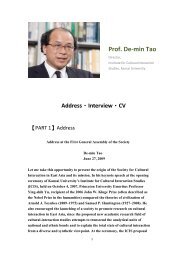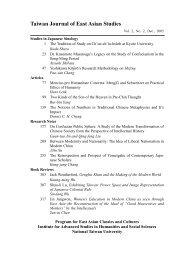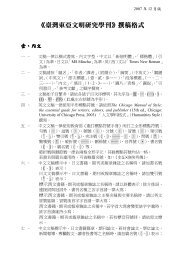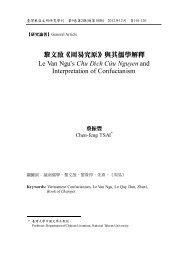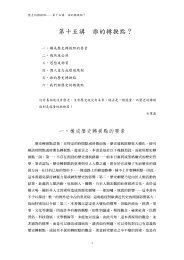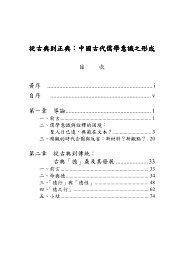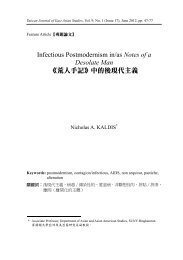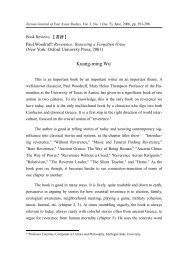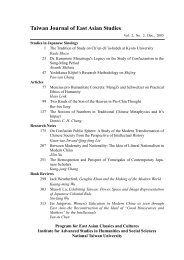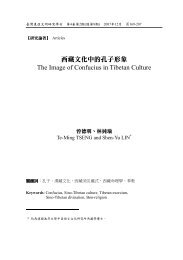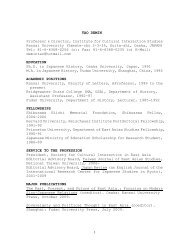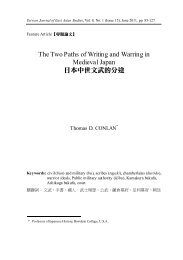臺灣東亞文明研究學刊 - 東亞經典與文化研究計畫 - 國立臺灣大學
臺灣東亞文明研究學刊 - 東亞經典與文化研究計畫 - 國立臺灣大學
臺灣東亞文明研究學刊 - 東亞經典與文化研究計畫 - 國立臺灣大學
Create successful ePaper yourself
Turn your PDF publications into a flip-book with our unique Google optimized e-Paper software.
Jörn RÜSEN Future-directed Elements of an European Historical Culture 213<br />
common traditions, and secondly as a strong conviction that Europe has to<br />
transgress its tradition into the future, so that this past contains a strong push, a<br />
driving force into the future.<br />
Nobody doubts that the different European countries and nations share<br />
common traditions. There is one comprehensive inheritance in the manifold<br />
different heredities of the different countries. So the different national or regional<br />
master narratives of the European peoples, which present them their identities, share<br />
certain elements of the past. Let me enumerate some of them: Greek philosophy,<br />
Roman law, Christianity, the chain of Renaissances and Reformations, the division<br />
of spiritual and secular power, urban life forms, scientific rationality and<br />
technological innovations, an aestheticized concept of art, secular enlightenment,<br />
human and civil rights, the life form of a Civil Society, democratic organisation of<br />
political domination, the principle of tolerance, the concept of national identity.<br />
A Future of Europe by Overcoming Its Past<br />
The driving force in the common past of the Europeans, which pushes their<br />
historical culture to further developments, are common negative experiences,<br />
mainly the European catastrophes of the 20 th Century. This series of catastrophes<br />
started with the so-called 'Original Catastrophe' (Ur-Katastrophe) of the First World<br />
War and it led into the Cold War after '45. Recently Adolf Muschg, a famous Swiss<br />
writer, expressed this future orientation of the European past in his Krupp-lecture at<br />
the Institute for Advanced Study in the Humanities at Essen. 4 He spoke on<br />
4 I would like to thank Adolf Muschg for this lecture, delivered in the Winter term 2004/5. I owe him<br />
new perspectives on Europeanness and a deepened insight into the complexity of European<br />
identity.<br />
v



